Africa battling with irregular migration, unethical recruitment practices

Leonard Ncube, Victoria Falls Reporter
AFRICAN countries are struggling to come up with ways to deal with irregular migration and unethical recruitment.
Authorities are proposing promoting ethical recruitment and rights-based bilateral labour migration agreements to address the challenges.
According to the latest estimates from the International Labour Organisation (ILO), the number of international migrant workers globally has risen by three percent since 2017 to 169 million.
Migrant workers dominate the agriculture, health, domestic work, construction, cruise ship, education and engineering sectors.
Millions of them remain vulnerable and take up risks during their time in foreign lands, with unethical and corrupt recruitment practices often the root cause.
Zimbabweans are included in these statistics that underscore the importance of international migrant workers to the functioning of the global economy.
Thousands of Zimbabwean professionals and non-professionals leave the country in search of what is termed greener pastures in foreign lands.
This has resulted in brain drain that has almost crippled the local economy as professionals leave in droves especially in the health and education sectors.
Recruitment is mostly done by private agencies and that poses serious risk to regulation of the sector as some prospective job seekers are charged exorbitant fees and promised non-existent jobs in foreign lands.
This exposes migrants to labour and sexual exploitation, human trafficking, drug smuggling and other cross-border crimes.
Unethical recruitment undermines Government programmes, policies and corporate efforts to conduct business in a socially responsible way.

The importance of intra-regional migration has gained traction within high level policy discourse while the call for countries to collaborate on recruitment of cross-border labour and migrants to prevent unethical recruitment which results in xenophobic tendencies and exploitation has also escalated.
The International Organisation for Migration (IOM) which administers the Southern African Migration Management Project and Africa Regional Migration Programme funded by the European Union and United States respectively in collaboration with the Government, recently held a workshop on capacity development initiative on promoting ethical recruitment and rights-based bilateral labour migration agreements in the Southern African Region in Victoria Falls.
The workshop deliberated on threats posed by unscrupulous or bogus private recruitment agents and build capacity on ethical recruitment to prevent human trafficking, exploitation and xenophobic attacks on foreigners.
Unethical recruitment is when people are recruited without due process of legislation, under false promises, without a contract, with a fictitious contract or with unfavourable conditions.
A few days ago, the Africa Union Commission conducted an inaugural workshop in Victoria Falls, attended by various stakeholders to provide a platform to exchange information aimed at combating the scourge of trans-national organised crime, common even in Zimbabwe, which is used as a transit route to South Africa.

Mr Aaron Nhepera
The AU Commission is working on establishing a Continental Operational Centre whose purpose would be to spearhead efforts to combat the scourge of trans-national organised crime, particularly human trafficking, irregular migration and migrant smuggling.
The centre will be housed in Khartoum, Sudan where the facility is already in existence waiting to be operationalised.
Thousands of Zimbabweans are in neighbouring countries as well as far afield, and are among the 281 million citizens of the world who are currently outside their countries.
A majority of these end up becoming refugees because they are subjected to poor working conditions, exploitation, xenophobia and other crimes.
In 2016, Government rescued more than 100 Zimbabwean women from Kuwait where some had been turned into sex slaves after being lured to non-existent jobs by unscrupulous employment agencies.
Lately, some health professionals have also fallen prey to similar unethical recruitment as the so-called agencies disappear with their hard earned money before linking them to the promised jobs.
Despite all this, thousands of civil servants continue to seek to travel, especially to the United Kingdom, for such opportunities.
Migration around the continent is on the rise due to a multiplicity of factors including economic conditions, political instability, conflict and civil strife, as well as pull factors in receiving countries.
Public Service, Labour and Social Welfare Permanent Secretary Mr Simon Masanga said irregular migration becomes a burden to Government as it will be left with the responsibility to repatriate its citizens, and to the host country as it will divert resources for its citizens to take care of the migrants.

Public Service, Labour and Social Welfare Permanent Secretary Mr Simon Masanga
In an effort to regularise recruitment of local professionals outside the country, Government has since entered into an agreement with Rwanda and about 225 professionals are set to be posted there this month after undergoing all processes
Angola and Qatar have also requested for Zimbabwean professionals and Government is engaging the two nations to establish agreements before posting its professionals there.
Bilateral agreements will help create a database and the country will also benefit from diaspora remittances and philanthropic work.
Zimbabwe is pursuing a bilateral agreement with South Africa with regards to thousands of citizens who are not certain of their future in the neighbouring country.
South Africa recently extended the stay of Zimbabwean Exemption Permit (ZEP) holders to the end of June next year, after the initial deadline of 31 December this year.
“We have had a very successful recruitment programme to Rwanda focusing mainly on teachers that are going under a joint programme. The beauty about the bi-lateral recruitment is that conditions of service are negotiated by Government and we were able to do this on behalf of the applicants,” said Mr Masanga.
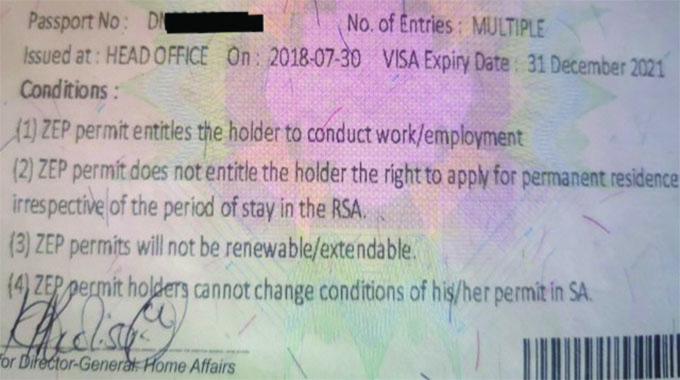
Zimbabwe Exemption Permits (ZEP)
IOM chief of mission Mr Mario Lito Malanca said there are numerous harrowing experiences such as domestic violence, slavery, exploitation, document confiscation, trafficking, sexual abuse and aggravated assault among others that confront some migrant workers in their quest for better lives.
“As IOM, our strategy on labour migration is guided by several frameworks including IOM’s Regional Strategy for Southern Africa, Sustainable Development Goals, Global Compact for safe, orderly, and regular migration, Africa Agenda 2063, Sadc Labour Migration Policy Framework and Revised AU Migration Policy Framework.
“Our work on labour migration is geared towards achievement of SDG 8 which calls on member states to promote sustained, inclusive and sustainable growth, full and productive employment and decent work for all and SDG 10 which enjoins states to facilitate safe, orderly, regular and responsible migration.
“In addition, the AU Revised Migration Policy Framework for Africa and Sadc Labour Migration Policy Framework encourage the development of national labour migration policies that seek to protect and guarantee migrant workers’ rights,” said Mr Malanca.
IOM regional manager Mr Sylvester Deane said there is a need to put in place targeted measures to counter migrant exploitation and to promote good labour migration governance and ethical recruitment which curb to labour exploitation, violence or xenophobia meted on migrant workers.
Speaking at a strategic planning workshop for the establishment of the Khartoum centre, Home Affairs and Cultural Heritage Permanent Secretary Mr Aaron Nhepera said Zimbabwe is committed to the establishment of an institutional framework which will contribute towards combating human trafficking.
“Zimbabwe in the context of Sadc is already working hard in the fight against these transnational organised crimes of human trafficking.
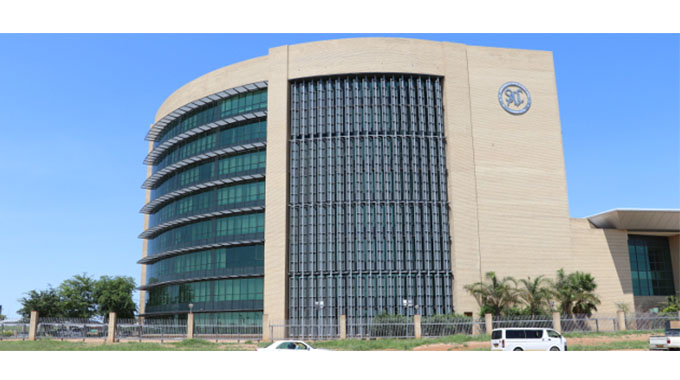
“Indeed we have no other option as a continent, region and individual countries other than working closely with each other. We can’t achieve anything if we can’t work together,” said Mr Nhepera.
The Ministry of Home Affairs is the chair of an inter-ministerial committee on human trafficking working in collaboration with neighbouring countries.
Numerous incidents of foreign nationals being arrested for illegally entering Zimbabwe have been recorded especially in border towns like Victoria Falls and Beitbridge enroute to South Africa.
There are known human traffickers that are in the business of carrying illegal migrants between borders.
Mr Nhepera said irregular migration and human trafficking is a challenge in Zimbabwe.
“We are still coming across groups of people traversing through our country, most of them wanting to pass but there are some who are choosing to stay in Zimbabwe so it’s a challenge.
“We have been apprehending these people and sending them back to their countries or handing them to the UN Agencies where necessary,” he said.
The decision to establish a Continental Operational Centre in Sudan was endorsed by the Assembly during the 32nd Ordinary Session of the AU Assembly held in February 2019.
Zimbabwe has also domesticated the United Nations Protocol to Prevent, Suppress and Punish Trafficking in Persons especially women and children through an Act of Parliament, the Trafficking in Persons Act (Chapter 9.25), which criminalises human trafficking.
AU Commission Senior Technical Adviser — Migration Governance and Liaison Mr Peter Mudungwe said there is a need to address irregular migration, which is one of the phenomena affecting the continent.
“In the past 10 years, there has been a huge increase in irregular migration in Africa and that’s why the centre was established. The AU Commission is committed to addressing migration issues on the continent in a holistic and systematic manner and we need a strategic plan for countries to deal with irregular migration,” he said. — @ncubeleon

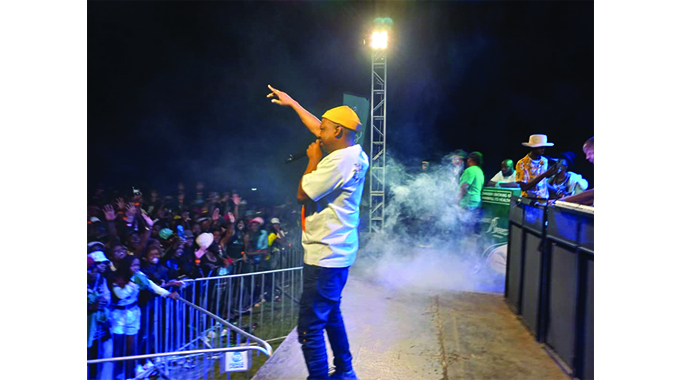


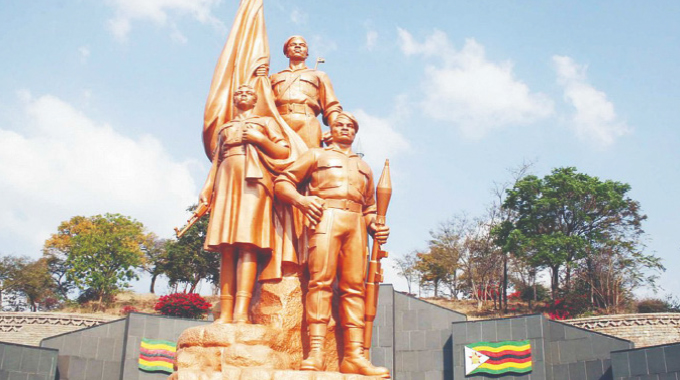
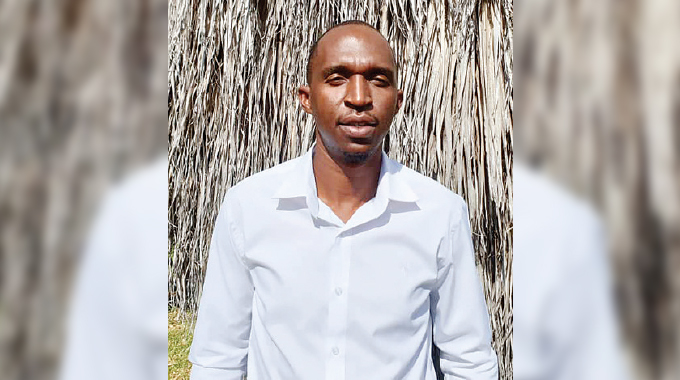






Comments